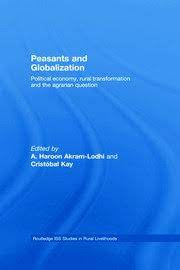
2008 | 360 Pages | ISBN: 0415446295 | PDF | 2 MB
In 2007, for the first time in human history, a majority of the world’s population lived in cities. However, on a global scale, poverty overwhelmingly retains a rural face. This book assembles a group of internationally eminent scholars in the field of rural development and social change in order to explore historical and contemporary processes of agrarian transformation and its consequent impact on livelihoods, poverty and wellbeing. After examining the agrarian origins of capitalism in Europe, the impact of colonialism on rural change in colonized countries, and processes of agrarian transformation through the twentieth century until the present, this book offers a number of challenging perspectives on the extent to which contemporary international capitalism, neoliberal globalization, and transformations in the world food system have affected the capacity of developing and transition countries to facilitate sustainable rural development through egalitarian agrarian change and poverty eradication in the countryside. The book provides a critical analysis of the extent to which rural development trajectories have in the past promoted, and are now promoting, a reconfiguration of rural production processes, the accumulation of rural resources and shifts in rural politics – and of the implications of such trajectories for peasant livelihoods in an era of globalization. Peasants and Globalization explores continuity and change in the debate on the ‘agrarian question’, from its early formulation in the late nineteenth century to the continuing relevance it has in our times. Collectively, the contributors argue that in deepening the market imperative governing contemporary agriculture, neoliberal social and economic policies not only have failed to tackle the underlying causes of rural poverty, but also have deepened the agrarian crisis currently confronting the livelihoods of peasant farmers and rural workers around the world. This crisis does not go unchallenged, as rural social movements have emerged, for the first time, on a transnational scale. Confronting development policies that are unable to reduce, let alone eliminate, rural poverty, transnational rural social movements are attempting to construct a more just future for the world’s farmers and rural workers.
Download: